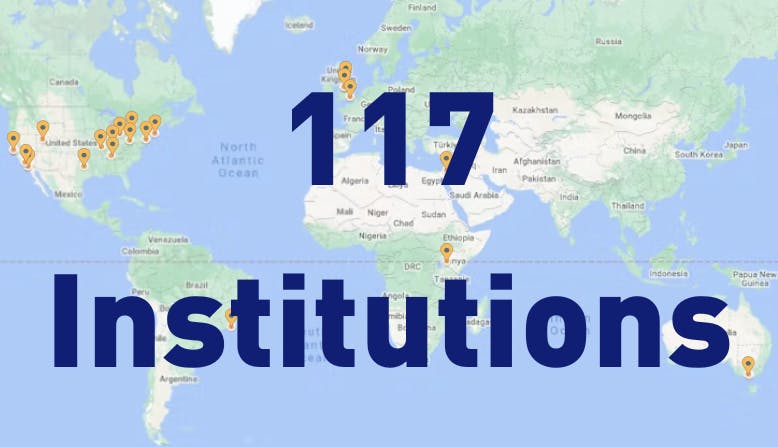Impact of NPF-Funded Research
NPF has funded over $35 million in psoriatic disease research since 1987
Each year, NPF awards grants and fellowships focused on the treatment, prevention, and cure of psoriasis, psoriatic arthritis (PsA), and comorbidities.



Discovery and Impact
While the true impact of NPF-funded research on our community is immeasurable, our funding portfolio has shown an extraordinary return on investment. NPF has funded many successful psoriatic disease research programs, which often build the foundation for investigators to pursue larger federal research grants. NPF-funded research has resulted in nearly 600 publications and approximately $50 million in subsequent funding for psoriatic disease research.
Beginning with an initial investment in 1987 through the Pilot Program award, NPF has invested over $35 million in grants and fellowships focused on psoriatic disease and related comorbidities. This funding has provided support to undergraduate, graduate, and medical students, postdoctoral and early career researchers, young doctors, academic scientists, and clinician-scientists. Each dollar and each person work towards NPF's mission to drive efforts to cure psoriatic disease and improve the lives of those affected.



Active Research Projects
Discover the research projects currently funded by NPF, including project summaries, impact statements, and researcher profiles.
Funding Mechanisms
- Discovery Grants
Support researchers while they explore preliminary ideas and conduct proof-of-concept experiments.
Learn more - Early Career Research Grants
Support graduate students and postdoctoral researchers in training to conduct psoriatic disease research independently.
Learn more - Psoriatic Disease Research Fellowships
Support eligible institutions to develop and enhance the opportunities for physicians in training for research careers in dermatology and rheumatology.
Learn more - Translational Research Grants
Support projects that advance basic science discoveries and studies into treatments that can benefit patients with psoriatic disease.
Learn more - Bridge Grants
Support meritorious but unfunded K-type and R-type applications to the NIH, or similar funding body, focused on psoriatic disease or related comorbidities.
Learn more
Priority Research
Psoriasis Prevention Initiative
The PPI grant mechanism aims to identify an intervention that will prevent the onset of psoriatic disease, disease relapse, or relevant comorbidities, utilizing multi-institutional, multi-disciplinary teams. Three teams were awarded $250,000 for first-year, proof-of-concept research. Following a competitive renewal process, Joel Gelfand, M.D., FAAD, professor of dermatology and epidemiology at the Perelman School of Medicine at the University of Pennsylvania, and the CP3 virtual cluster were awarded $1.5 million in subsequent funding for their project "Prevention of cardiovascular disease and mortality in patients with psoriasis or psoriatic arthritis (CP3): Translating guidelines of care to better outcomes for patients with psoriatic disease". This is the largest single grant investment in the 55-year history of NPF.
PsA Diagnostic Test Grant
This PsA Diagnostic Test Grant program aims to fund the development of a clinically applicable diagnostic test for psoriatic arthritis. This grant program funded six first-year proof-of-concept proposals that have the potential to achieve this goal within five years. Then followed a competitive renewal process between the six projects for up to three additional years of funding to confirm the initial findings followed by development and validation of a diagnostic test. This second phase of grant funding was awarded to Vinod Chandran MBBS, M.D., DM, Ph.D., University Health Network, University of Toronto, and Jose Scher M.D., New York University School of Medicine. Dr. Scher’s project was combined with Dr. Wilson Liao’s initial application to support a joint collaboration between the awardees with a similar project focus at a higher dollar amount to support the collaborative project continuation.
Patient-Centered Research
Patient-centered research places the patient at the center of the research process. It engages patients and caregivers throughout the research process, from the formulation of research questions to the dissemination of results.
NPF Publications
NPF staff and partners have contributed dozens of publications to the scientific record.
Annual Reports
The National Psoriasis Foundation’s annual reports provide an overview of the accomplishments of each fiscal year (July 1 to June 30).
Help Fund Critical Research
Improved treatment options, disease detection and prevention, and therapies with curative potential require significant investment, year after year.